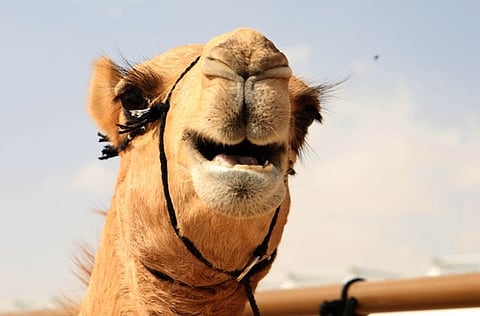Saudi Arabia doubles penalty for tampering with camel lips
52 camels disqualified at contest over lip stretching amid clampdown on enhancements

Cairo: Saudi Arabia’s King Abdulaziz Camel Festival, an annual flagship event, has decided to double a financial penalty on breeders who tamper with lips of the animal as part of banned artificial enhancements, a local newspaper reported.
Organisers of the ongoing festival have decided to raise the fine against stretching camel lips to SR100,000 instead of SR50,000 due to the excessive number of this violations uncovered in recent days and to limit it, online newspaper Sabq said.
Lip stretching out involves pulling the lower and upper lips of the camel to make them appear longer than usual to strike attention of the jury at a beauty contest at the festival.
Fifty-two such cases have recently been detected and disqualified at the event by sophisticated devices, according to the report.
There was no word on penalties for other artificial enhancements uncovered at the 43-day festival that began on December 1.
The festival’s organisers have disqualified dozens of camels from the pageant this year after the animals were found to have undergone cosmetic enhancements including the Botox injections, face lifts, collagen fillers and the use of rubber bands to inflate their body parts to make them look shapely, according to the Saudi news agency SPA.
The pageant, the world’s biggest camel festival, draws breeders and fans from the kingdom, other Gulf countries and the rest of the world.
The sixth edition of the festival, under way north of Riyadh, also features races and a popular camel market, the biggest in the Gulf, seeing multi-billion deals annually. A total of SR250,000 worth of prizes are up for grabs at the festival’s competitions in 19 categories.
Camels are a popular animal closely linked to heritage in Saudi Arabia. The animal has long been dubbed as the “ship of the desert”, being the lifeline for desert dwellers.


